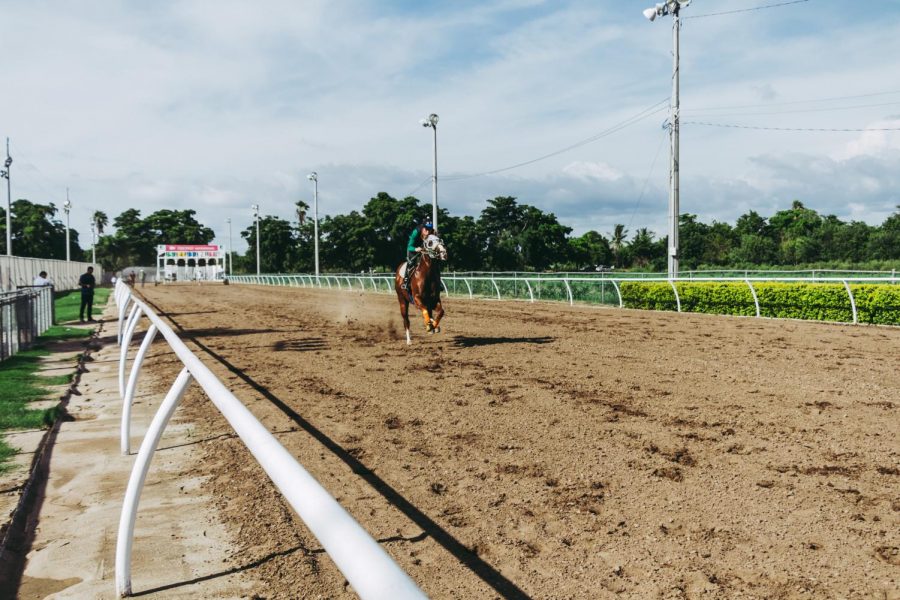The end of the race track
Thus far, over 20 victims have fallen prey to a menace that claims 2,000 lives every year: the horse racing industry. Swept into the excitement of the race and thrill of the risk gambling provides, many fail to see industry’s true colors. It is time for this corrupt industry, which stops at nothing to capitalize on the suffering of animals, to end, for anti-doping policies alone are clearly not enough to protect the lives of these noble creatures.
Horse racing cannot be viewed as a sport, as the cruel influence of capitalism lies at its core.
Though money is a factor in every professional realm of athleticism, its influence is more profoundly and harshly shown in this industry, whose players are viewed as property. Athletes taking extreme measures to ensure their victory is common, but as a living breathing human their life is not viewed as expendable. In contrast, jockeys have the freedom to wield unchecked power over their horses in the form of doping, whipping, and over-exercise. The thought of victory corrupts the bond of trust which should exist between riders and their horses. In a few cases, jockeys have been documented forcing their horses to continue on even after sustaining a major injury, eventually resulting in their death by euthanasia.
In addition, horse racing should not be viewed in the lighthearted manner of a normal sport because no other normalizes the routine deaths of its players on the field. An examination of the medical reports of the deaths of over 300 horses displayed that 36% occurred suddenly after bouts of intense exercise, some of which included signs of a condition known as exercise-induced pulmonary hemorrhage. The stress created by the long hours of practice and racing weakens the blood vessels, causing bleeding from the lungs and eventually death. Clearly, the industry’s excuse that “horses were born to run and they enjoy being raced” is a falsity, or it should be acknowledged that horses don’t enjoy being raced to death.
More sick than the despicable treatment of the horses during their life is what happens to their bodies after their death. In some cases, the owner of the horse will send them to a foreign slaughterhouse once they no longer posses the youthfulness required to win races. The industry is thus able to squeeze a final profit out of them, an exploitation that proves that nothing positive comes out of this twisted industry.
Recently, an increase in deaths at the Santa Anita track has spurred a series of protests and discussions calling for an end to the horse racing industry. For centuries many have turned a blind eye to the cruelties of the horse racing industry, but the enlightenment founded by the growing awareness in this modern age may finally rid our country of this cruel institution.


